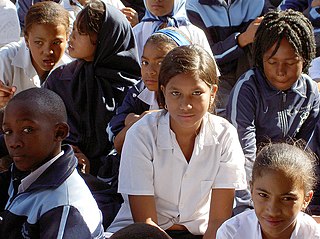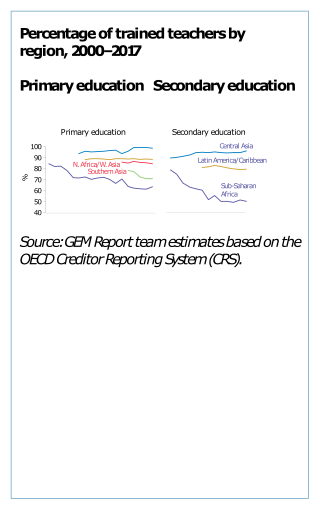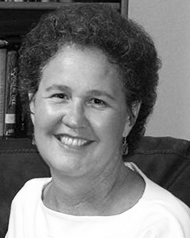
A teacher,also called a schoolteacher or formally an educator,is a person who helps students to acquire knowledge,competence,or virtue,via the practice of teaching.
A Bachelor of Education is an undergraduate academic degree which prepares students for work as a teacher in schools. A Bachelor of Education program typically lasts three to four years and combines both coursework and practical experience in educational settings. The curriculum is designed to provide foundational knowledge in pedagogy,educational psychology,teaching methodologies,and subject-specific training. Graduates of this program are equipped with the skills necessary to foster a supportive and effective learning environment for their students.

Education in South Africa is governed by two national departments,namely the Department of Basic Education (DBE),which is responsible for primary and secondary schools,and the Department of Higher Education and Training (DHET),which is responsible for tertiary education and vocational training. Prior to 2009,both departments were represented in a single Department of Education. Among sub-Saharan African countries,South Africa has one of the highest literacy rates. According to The World Factbook - Central Intelligence Agency as of 2019,95% of the population aged from 15 and over can read and write in South Africa were respectively literate.

Teacher education or teacher training refers to programs,policies,procedures,and provision designed to equip (prospective) teachers with the knowledge,attitudes,behaviors,approaches,methodologies and skills they require to perform their tasks effectively in the classroom,school,and wider community. The professionals who engage in training the prospective teachers are called teacher educators.

Fernando M. Reimers is the Ford Foundation Professor of the Practice in International Education and Director of the Global Education Innovation Initiative at the Harvard Graduate School of Education. He is interested in advancing understanding of the ways schools can empower students to participate civically and economically,and to help achieve the UN Sustainable Development Goals. He served on UNESCO's Commission on the Futures of Education that authored the report Reimagining Our Futures Together. A New Social Contract for Education.

Linda Darling-Hammond is an American academic who is the Charles E. Ducommun Professor of Education Emeritus at the Stanford Graduate School of Education. She was also the President and CEO of the Learning Policy Institute. She is author or editor of more than 25 books and more than 500 articles on education policy and practice. Her work focuses on school restructuring,teacher education,and educational equity. She was education advisor to Barack Obama's 2008 presidential campaign and was reportedly among candidates for United States Secretary of Education in the Obama administration.
Mary James FAcSS retired in January 2014 as Professor and Associate Director of Research at the University of Cambridge,Faculty of Education. In the same year she completed her four-year term as Vice President and President of the British Education and Research Association.

Evidence-based education (EBE) is the principle that education practices should be based on the best available scientific evidence,with randomised trials as the gold standard of evidence,rather than tradition,personal judgement,or other influences. Evidence-based education is related to evidence-based teaching,evidence-based learning,and school effectiveness research.
Despite significant progress,education remains a challenge in Latin America. The region has made great progress in educational coverage;almost all children attend primary school and access to secondary education has increased considerably. Children complete on average two more years of schooling than their parents' generation. Most educational systems in the region have implemented various types of administrative and institutional reforms that have enabled reach for places and communities that had no access to education services in the early 90s.
Barnett Berry is a research professor at the University of South Carolina,where he is the founding director of Accelerating for Learning and Leadership for South Carolina (ALL4SC) —an initiative launched in 2019,to marshal the resources of an entire R1 institution of higher education in service of high need school communities. Barnett's career includes serving as a high school teacher,a social scientist at the RAND Corporation,a professor at UofSC,a senior state education agency leader,and senior consultant with the National Commission on Teaching and America's Future,leading its state partnership network. From 1999 to 2018,Barnett led Center for Teaching Quality website,a non-profit he founded to conduct research and ignite teacher leadership to transform the teaching profession and public education for more equitable outcomes for students. Barnett has authored a wide array of over 120 policy and research reports,journal articles,and commissioned papers. His two books,TEACHING 2030 and Teacherpreneurs:Innovative Teachers Who Lead But Don't Leave,frame a bold vision for the profession's future. He is the 2021 recipient of the James A. Kelly Award for Advancing Accomplished Teaching from the National Board for Professional Teaching Standards and is a policy advisor for the Learning Policy Institute.
Academic ranks in Colombia are the titles,relative importance and power of professors,researchers,and administrative personnel held in academia.

Teacher retention is a field of education research that focuses on how factors such as school characteristics and teacher demographics affect whether teachers stay in their schools,move to different schools,or leave the profession before retirement. The field developed in response to a perceived shortage in the education labor market in the 1990s. The most recent meta-analysis establishes that school factors,teacher factors,and external and policy factors are key factors that influence teacher attrition and retention. Teacher attrition is thought to be higher in low income schools and in high need subjects like math,science,and special education. More recent evidence suggests that school organizational characteristics has significant effects on teacher decisions to stay or leave.
Erica Nicole Walker is an American mathematician and the Clifford Brewster Upton Professor of Mathematics Education at Teachers College,Columbia University,where she also serves as the Chairperson of the Department of Mathematics,Science,and Technology and as the Director of the Institute for Urban and Minority Education. Walker’s research focuses on the "social and cultural factors as well as educational policies and practices that facilitate mathematics engagement,learning and performance,especially for underserved students".
Teaching English as a second (TESL) orforeign language (TEFL) and teaching English to speakers of other languages (TESOL) are terms that refer to teaching English to students whose first language is not English. The terms TEFL,TESL,and TESOL distinguish between a class's location and student population,and have become problematic due to their lack of clarity. TEFL refers to English-language programs conducted in countries where English is not the primary language,and may be taught at a language school or by a tutor. For some jobs,the minimum TEFL requirement is a 100-hour course;the 120-hour course is recommended,however,since it may lead to higher-paid teaching positions. TEFL teachers may be native or non-native speakers of English.

The COVID-19 pandemic affected educational systems across the world. The number of cases of COVID-19 started to rise in March 2020 and many educational institutions and universities underwent closure. Most countries decided to temporarily close the educational institutions in order to reduce the spread of COVID-19. UNESCO estimates that at the height of the closures in April 2020,national educational shutdowns affected nearly 1.6 billion students in 200 countries:94% of the student population and one-fifth of the global population. Closures are estimated to have lasted for an average of 41 weeks. They have had significant negative effects on student learning,which are predicted to have substantial long-term implications for both education and earnings. During the pandemic,education budgets and official aid program budgets for education had decreased.
There was a resurgence of homeschooling during the COVID-19 pandemic to help students return to school. Innovative parents sought to create solutions to their individual dilemmas by organizing local groups. These variations of homeschooling include micro schools and educational family co-ops. The first usually involves hired professionals to teach a small group of kids. The second is a parent-organized co-operative where families take turns educating and minding their kids during the week. Both are largely available only to the well-off,as costs in time and money are high. 'Pandemic pod' is the fashionable term used to describe one of these arrangements where all group members agree to participate under well-defined and strictly enforced health rules.

Most governments decided to temporarily close educational institutions in an attempt to reduce the spread of COVID-19. As of 12 January 2021,approximately 825 million learners are affected due to school closures in response to the pandemic. According to UNICEF monitoring,23 countries are implementing nationwide closures and 40 are implementing local closures,impacting about 47 percent of the world's student population. 112 countries' schools are open.

In 2020,school systems in the United States began to close down in March because of the spread of COVID-19. This was a historic event in the history of the United States schooling system because it forced schools to shut-down. At the very peak of school closures,COVID-19 affected 55.1 million students in 124,000 public and private U.S. schools. The effects of widespread school shut-downs were felt nationwide,and aggravated several social inequalities in gender,technology,educational achievement,and mental health.
The learning crisis or global learning crisis is a term describing the fact that,despite a large increase in access to schooling,learning outcomes remain poor,especially in developing countries. Worldwide,millions of children who attend school do not acquire basic skills such as literacy and numeracy,and many more are far behind age-appropriate expectations in their national curricula. Proponents argue that this crisis needs to be addressed due to the importance of education in fostering children's development,social mobility,and subsequent opportunities.
Susan W. Parker is an economist and academic. She is a professor at University of Maryland School of Public Policy where she also serves as the associate director of the Maryland Population Research Center.










